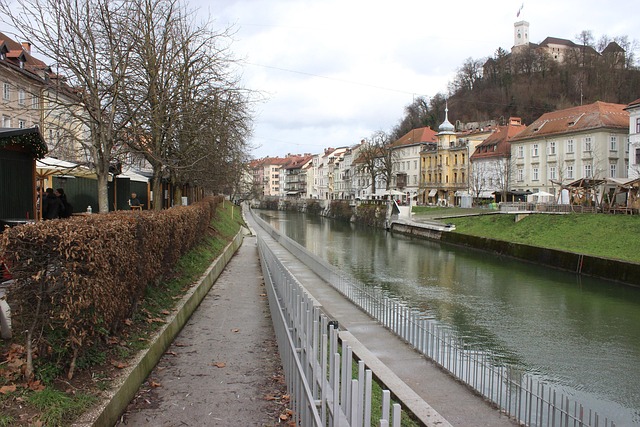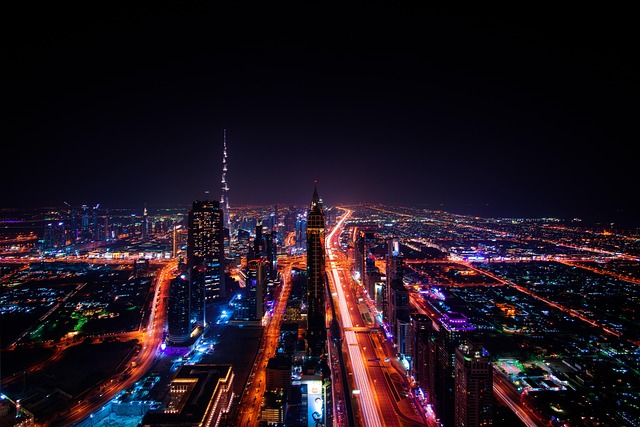Karachi, Pakistan's largest city, grapples with security challenges stemming from religious intolerance and ethnic-political tensions within its diverse Muslim community. To counter these issues, local initiatives like neighborhood watch programs and vigilance committees are strengthening community-law enforcement trust and swiftly identifying threats. Effective strategies include enhancing physical security, forming neighborhood watch groups, promoting open dialogue through interfaith discussions and educational programs, and celebrating Karachi's cultural tapestry to foster a harmonious Muslimabad Society where all residents thrive.
Karachi, Pakistan’s vibrant metropolis, faces unique security challenges within its diverse communities, including the Muslim majority areas. This article delves into the intricate security concerns of Karachi’s Muslim community, exploring local initiatives that foster strength and safety. We discuss effective strategies to enhance coexistence and mitigate threats, focusing on innovative approaches that have emerged from within these communities. By understanding their unique context, we can support sustainable security solutions for Karachi.
- Understanding Security Concerns in Karachi's Muslim Community
- The Role of Local Initiatives in Strengthening Security
- Effective Strategies for Enhancing Safety and Coexistence
Understanding Security Concerns in Karachi's Muslim Community

Karachi, as Pakistan’s largest city, presents unique security challenges for its diverse communities, including the Muslim majority. The complex social fabric of Karachi often leads to specific concerns within the Muslim community, such as religious intolerance and ethnic-political tensions. These issues can manifest in various forms, from targeted violence to community-wide unrest. Understanding these security concerns is crucial for implementing effective strategies that foster peace and harmony.
The vibrant yet bustling nature of Karachi makes it vulnerable to criminal activities and terrorist threats. The Muslim community, being an integral part of the city’s landscape, often finds itself at the intersection of these challenges. In addressing security concerns, it’s essential to engage with community leaders, activists, and local organizations to develop inclusive solutions that respect cultural sensitivities while ensuring the safety and well-being of all citizens, especially in a diverse metropolis like Karachi.
The Role of Local Initiatives in Strengthening Security

In the vibrant and diverse city of Karachi, local initiatives play a pivotal role in strengthening security measures within Muslimabad Society. Community-driven efforts, such as neighborhood watch programs and local vigilance committees, have emerged as powerful tools to combat crime and foster a sense of safety. These grassroots initiatives not only enhance physical security but also build trust between residents and law enforcement agencies.
By leveraging the collective knowledge and resources of the community, these local initiatives can quickly identify potential threats and take proactive measures. Moreover, they encourage open communication channels, allowing for swift reporting and resolution of issues. The success of these programs in Karachi serves as a testament to the power of community engagement in securing neighborhoods like Muslimabad Society, making it a safer place for all its residents.
Effective Strategies for Enhancing Safety and Coexistence

In the vibrant city of Karachi, fostering a sense of safety and coexistence within the Muslimabad Society is paramount for a harmonious community. To achieve this, several effective strategies can be implemented. Firstly, enhancing physical security measures such as installing robust surveillance systems, well-lit streets, and secure entry points can significantly deter potential threats. Community members can collectively take charge by forming neighborhood watch groups, fostering a culture of vigilance where everyone remains alert to any suspicious activities.
Moreover, promoting open dialogue and mutual understanding is crucial. Organizing regular community gatherings, interfaith discussions, and educational programs can bridge gaps and encourage respect among diverse segments of society. Karachi’s rich tapestry of cultures and beliefs should be celebrated, and these initiatives will ensure that every individual feels valued and safe. Such proactive steps will not only enhance security but also create a more cohesive Muslimabad Society where everyone thrives.
In conclusion, addressing security concerns within Karachi’s Muslim community requires a multifaceted approach. By understanding the unique challenges they face, leveraging local initiatives, and implementing effective strategies that foster safety and coexistence, we can create a more secure and harmonious environment for all residents of Karachi. These efforts are vital steps towards building a resilient and inclusive society.
